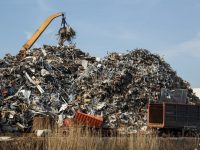Aluminium has long been prized for its lightweight, durable and infinitely recyclable nature. In today’s sustainability-driven marketplace, closed-loop recycling is transforming aluminium supply chains by reducing waste, cutting costs and advancing global climate goals. Unlike traditional recycling, which often leads to downcycling or material losses, closed-loop systems ensure aluminium scrap is reprocessed into products of the same quality, ready for reuse in high-value applications.
What is closed-loop aluminium recycling?
Closed-loop recycling is a circular model where post-consumer or post-industrial aluminium scrap is collected, processed, and remanufactured into the same product repeatedly. For example, used beverage cans (UBCs) can be recycled back into new cans without losing their properties. This contrasts with open-loop systems, where aluminium might be recycled into lower-grade applications, eventually exiting the supply chain.
The closed-loop approach maximises resource efficiency and ensures aluminium’s true potential as a circular economy enabler.
Benefits of closed-loop aluminium recycling
- Lower carbon footprint
Recycling aluminium uses up to 95% less energy than producing primary aluminium from bauxite. Closed-loop systems take this a step further by keeping materials within the same product cycle, thereby reducing transportation, remelting and conversion losses.
- Cost efficiency
Producers save on raw material imports and energy-intensive smelting by relying on secondary aluminium. For industries like packaging, automotive and construction, this translates into significant cost advantages.
- Supply chain security
With growing geopolitical tensions and tariffs impacting primary aluminium trade, closed-loop systems create self-sufficient supply chains. Companies can source scrap locally, mitigating risks of raw material shortages and price volatility.
- Sustainability & brand value
Consumers increasingly demand sustainable products. Brands that adopt closed-loop aluminium recycling from beverage companies to EV manufacturers gain credibility, regulatory advantages and customer loyalty.
Industries leading the way
- Packaging: Beverage can makers like Ball Corporation and Coca-Cola are heavily investing in closed-loop recycling to meet sustainability pledges.
- Automotive: EV producers and OEMs are recapturing aluminium from end-of-life vehicles to remanufacture body parts and battery casings.
- Construction: Building and façade systems are designed for easier dismantling, allowing aluminium to be recycled back into similar-grade products.
The future of aluminium supply chains
Closed-loop recycling is reshaping aluminium supply chains into leaner, greener and more resilient systems. With governments pushing stricter carbon regulations and the EU’s Carbon Border Adjustment Mechanism (CBAM) on the horizon, industries are accelerating investments in closed-loop solutions.
The future will see aluminium products designed with recyclability at the core, supported by digital tracking technologies and global recycling infrastructure. Those who embrace closed-loop models today will lead the aluminium industry into a sustainable tomorrow.












